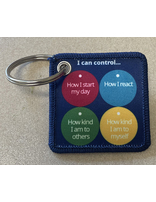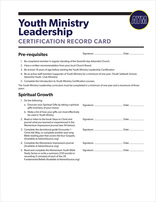 Answer: You’ve asked a really tough question, and one that affects most everyone, and some more than others! And then you bring God into the topic, too! Good for you!
Answer: You’ve asked a really tough question, and one that affects most everyone, and some more than others! And then you bring God into the topic, too! Good for you!The answer to your first question depends on the answer to the second question, so let’s look at the second question first – Do I have to forgive others in order for God to forgive me?
If you’ve ever prayed The Lord’s Prayer, have you noticed what’s right in the middle of that prayer? It goes like this: “And forgive us our sins, just as we have forgiven those who have sinned against us.” Matthew 6:12 (NLT). If God answers your prayer, God will be just as forgiving with you as you are with others. Is that what you want?
That possibility leads me to misquote Jesus when I pray. I prefer to say, “And forgive me my sins, much more than I have forgiven those who have sinned against me.” But that’s not what the Bible says.
If that isn’t direct enough, right after The Lord’s Prayer, Jesus said, “If you forgiven those who sin against you, your heavenly Father will forgive you. But if you refuse to forgive others, your Father will not forgive your sins.” Matthew 6:14-15 (NLT)
How’s that for a direct answer? Do you have to forgive others in order for God to forgive you? YES!
The answer is true, but it might not be helpful, unless you consider another story or two from Jesus.
One of these can be found in Matthew 18:23-35. It’s called the story of the unforgiving debtor. A king had a servant who owed him more than he could ever repay. Out of mercy, the king forgave him. The forgiven debtor happened to come across a fellow servant who owed him a small amount of money. But the forgiven debtor, the one who had received an unfathomable amount of mercy, passed along no mercy to his fellow-servant. When the king found out, he had the unmerciful, unforgiving servant thrown into jail. The story concludes with these words from Jesus, “That’s what my heavenly Father will do to you if you refuse to forgive your brothers and sisters in your heart.” Matthew 18:35 (NLT)
Perhaps the most critical insight from this story is where your focus is. If you focus on others who owe you something (such as somebody who has hurt you), they will always be in your debt. But if your focus is on God who has forgiven you of far more hurt than any amount somebody else can hurt you, you’ll just pass along the mercy. A focus on Jesus makes you seek justice for others except for when it comes to something others have done against you—then you go for mercy instead of justice.
Your first question was, “How do I forgive someone who has really hurt me?” I don’t think you can “just do it” or grit your teeth and just spit out the words, “You’re forgiven, you _____, ______, _____!”
When somebody has hurt you, that hurt often changes into anger, resentment, revenge, and bitterness. Sometimes it turns to a victimization that leaves you in pain, pity, and limping like a handicapped person. Either way you’re a mess! Commanding you to forgive at that moment isn’t likely to engender much openness on your part. Here’s what I recommend:
PRAY! Dump the whole thing on God. If you keep it inside, it will make you rot. If you spew it back on the person who hurt you, you’ll probably make things worse. If you dump it on somebody else, you’ll either be gossiping or recruiting an army to attack back. That’s why I say you should pray at a time like this.
If you don’t know what to say to God at times like this, try Psalm 109 (the whole Psalm). If that isn’t enough, go on to Psalm 69:18-29. In fact, keep reading through the Psalms—there are praise ones as well as pouting ones, and others, too.
After lancing your hurt, ask God for the gift of forgiveness. That’s right, it’s a gift from God. It’s not something that you work up. It’s not something you can purchase or even practice. It’s a gift from God, so you’ll need to go directly to the source in order to ever forgive somebody who has hurt you. Feeling guilty because you know you should forgive the person but you don’t want to won’t make you forgiving either. You simply go to God and ask God for the gift of forgiveness.
If that sounds too easy, here’s the hard part. The thing the person did that hurt you is something you need to hand over to God. Just like a quarterback hands off the football to a running back, you need to hand off the injustice and hurt to God. That means you have to let it go! And that’s the hard part!
Why is that hard? It means that you have no right to get the person back for how they wronged you! Will you turn that over to God? God is the one who said, “I will take vengeance; I will repay those who deserve it.” Deuteronomy 32:35 (NLT) (also quoted in Romans 12:19 and Hebrews 10:30). God can get somebody back much worse than you ever could. But there’s always the chance that God will just forgive them (like He has forgiven you).
Jonah found that troubling. When God didn’t destroy the people of Nineveh, Jonah cried out, “I knew that you were a gracious and compassionate God, slow to get angry and filled with unfailing love. I knew how easily you could cancel your plans for destroying these people.” (see Jonah 4:2, NLT)
It seems as though this angry prophet had forgotten that this gracious, compassionate, and forgiving God was the same One who saved him in chapter one of Jonah!
When we’re hurting, we’re more apt to feel sorry for ourselves and point out what’s wrong with the other person than to recall the forgiveness that God has already given to us!
Some people are likely to point out that it would be good to go directly to the person who hurt you and to confront them and give them a chance to ask for forgiveness. Or you might consult with a trusted Christian friend to help you maneuver through the sensitive situation. I suppose that can be helpful. But that often seems to me sort of like putting a tiny band aid on a series of machete slashes across your entire gut!
What you need is the gift of forgiveness! Only God can give that to you. The other person might not even know they have hurt you. Or if they do know it, they aren’t likely to ask for forgiveness. When God has given you the gift, you can pass it along whether the other person asks for it or not (see Matthew 5:23-24)!
When Jesus had his feet anointed by a notoriously sinful woman at a special dinner, the host (who was a Pharisee) found himself offended that the woman did this AND that Jesus didn’t get rid of the woman. Jesus clarified his intentions with this analogy: a man loaned two people some money; one received $500 and the other one received $50, and the man forgave both of them their debts. Which one will love him more? The Pharisee spoke the obvious, “I suppose the one for whom he cancelled the larger debt.”
In case anyone missed the point, Jesus summarized it as, “Those who have been forgiven little show only a little bit of love; but those who have been forgiven much will show much love (see Luke 7:36-50 for the whole story).
If you have a hard time forgiving others, maybe it’s because you haven’t received much forgiveness yourself. Go to the source of forgiveness—God—and confess your mess-ups, dumping all your garbage so you can receive His gift of forgiveness. Then you will be able to show love and forgiveness because of what you have received from Him to pass on. That’s much better than hanging onto the hurt and letting it continue to destroy you!

















